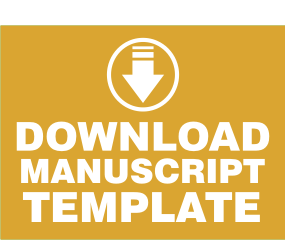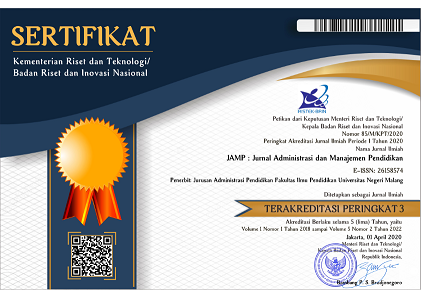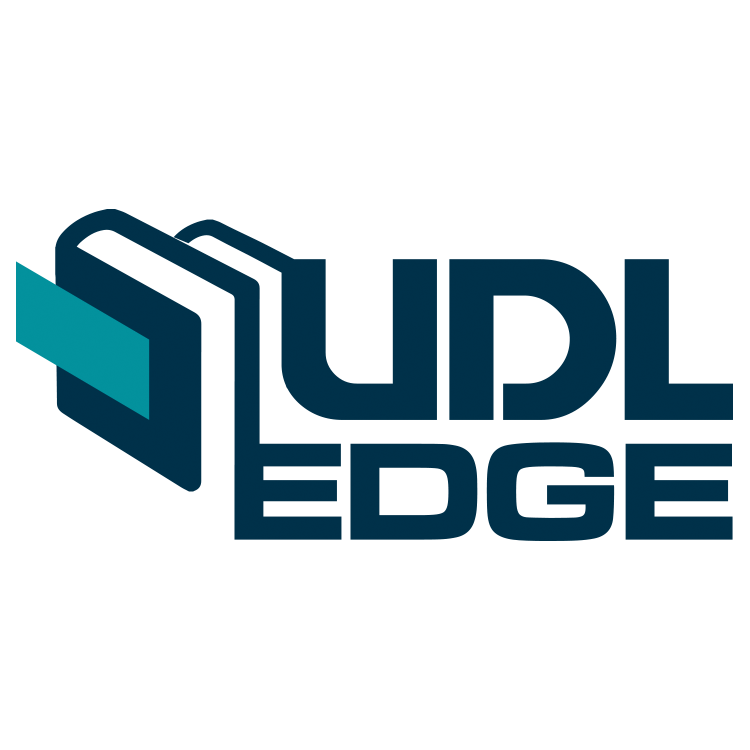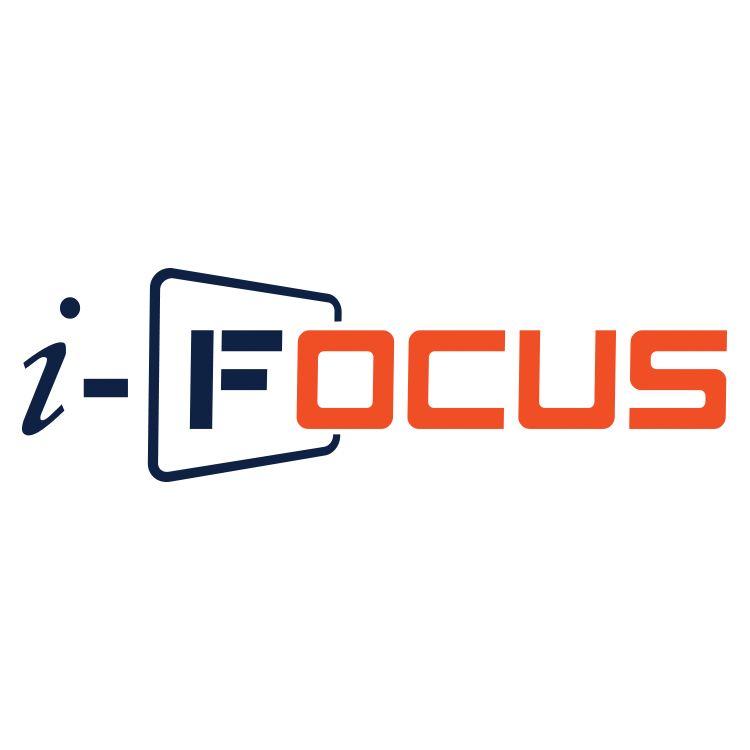PENGEMBANGAN VIDEO BAHAN AJAR SIPEJAR PADA PERKULIAHAN BLENDED LEARNING SUPERVISI PENGAJARAN MELALUI MODEL PEMBELAJARAN PROBLEM BASED ROLE PLAYING (PBRP)
Abstract
Abstract: Purpose of this study was to develop a video of SIPEJAR teaching materials in teaching supervision lectures through various tests on (1) video teaching materials and (2) learning syntax. The various research procedures used by the research team in this development use a modified research and development approach by Borg & Gall. The data collection instruments used in this study were questionnaires and expert validation sheets. The data analysis process in this study used quantitative descriptive. The data generated from the distribution of student questionnaire instruments were analyzed using standard formulas to describe learning problems, while in the feasibility test of existing products also used descriptive analysis through standard formulas to examine whether the product presented was feasible or not. The results in this study indicate that (1) the role-playing video for teaching supervision learning was assessed both by the first and second experts, (2) the role-playing video was considered good by the students, (3) the results of the different test showed that there was no difference in the perception of assessment between students. male and female, (4) the results of expert validation regarding the revised learning syntax were considered good, (5) the learning syntax which was originally 7 stages was revised into 6 stages. Then the theoretical-based review results state that (1) the PBRP model meets various criteria for good teaching materials, (2) the PBRP model has a long positive impact as a stimulus for students' 4C skills, student mental attainment, and student self-efficacy.
Keywords: Blended learning; instructional model; Educational Supervision
Abstrak: Tujuan penelitian ini adalah untuk mengembangkan video bahan ajar SIPEJAR pada perkuliahan supervisi pengajaran melalui berbagai pengujian terhadap (1) video bahan ajar dan (2) sintak pembelajaran. Berbagai prosedur penelitian yang digunakan oleh tim peneliti pada pengembangan ini menggunakan pendekatan r & d atau research and development Borg & Gall yang telah dimodifikasi. Instrumen pengumpulan data yang digunakan dalam penelitian ini adalah angket dan lembar validasi ahli. Proses analisis data dalam penelitian ini menggunakan deskriptif kuantitatif. Data yang dihasilkan dari sebaran instrumen angket mahasiswa dianalisis menggunakan formula stanfive untuk mendeskripsikan permasalahan pembelajaran, sedangkan dalam uji kelayakan produk yang ada juga menggunakan analisis deksriptif melalui rumus stanfive guna menelaah apakah produk yang disajika layak atau tidak. Hasil dalam penelitian ini menunjukkan bahwa (1) video bermain peran untuk pembelajaran supervisi pengajaran dinilai baik oleh ahli pertama dan kedua, (2) video bermain peran dinilai baik oleh mahasiswa, (3) hasil uji beda, menunjukkan tidak ada perbedaan persepsi penilaian antara mahasiswa laki-laki dan perempuan, (4) hasil validasi ahli mengenai sintak pembelajaran revisi dinilai baik, (5) sintak pembelajaran yang awalnya 7 tahap direvisi menjadi 6 tahap. Kemudian hasil telaah theoritical based menyatakan bahwa (1) model PBRP memenuhi berbagai kriteria bahan ajar yang baik, (2) model PBRP memiliki dampak positif panjang sebagai stimulus adanya keterampilan 4C siswa, mental attainment siswa, dan efikasi diri siswa.
Kata kunci: Blended learning; Model Pembelajaran; Supervisi Pendidikan
Full Text:
PDFReferences
Afandi, M., Chamalah, E., & Puspita Wardani, O. (2013). Model & Metode Pembelajaran di Sekolah. In Unissula Press.
Anggraeni, A. D. (2018). Metode Role Playing dalam Pembelajaran Profesi Kependidikan. Jurnal Pendidikan Progresif, Vol. 8, pp. 29–35. LPPM Universitas Lampung. https://doi.org/10.23960/jpp.v8.i1.201804
Armstrong, e. K. (2003). Applications of Role-Playing in Tourism Management Teaching: An Evaluation of a Learning Method. The Journal of Hospitality Leisure Sport and Tourism, 2(1), 5–16. https://doi.org/10.3794/johlste.21.24
Burden, P. R & Byrd, D. M. (2013). Methods for Effective Learning. New York: Pearson Education Inc.
DeMatthews, D., Knight, D., Reyes, P., Benedict, A., & Callahan, R. (2020). From the Field: Education Research During a Pandemic. Educational Researcher, 49(6), 398–402. https://doi.org/10.3102/0013189X20938761
Errington, E. (1997). Role-play in higher education. Role-Play, 47–50.
Fatimah, E. (2006). Psikologi Perkembangan. Bandung: CV. Pustaka Setia.
Gijbels, D., Dochy, F., Van den Bossche, P., & Segers, M. (2005). Effects of Problem-Based Learning: A Meta-Analysis From the Angle of Assessment. Review of Educational Research, 75(1), 27–61. https://doi.org/10.3102/00346543075001027
Greenberg, E. and Miller, P. (1991). The Player and the Professor: Theatrical Techniques in Teaching. Journal of Management Education, 15(4), 428–46.
Gunawan, I. (2013). Metode Penelitian Kuantitatif. Jakarta: Bumi Aksara.
Gunawan, I., & Benty, D. D. N. (2017). Manajemen Pendidikan Suatu Pengantar Praktik. Alfabeta.
Hurlock E.B. (2000). Psikologi Perkembangan. Jakarta: Erlangga.
Kolb, D. (2007). Experiential Learning: Experience as the Source of Learning and Development (terjemahan Bahasa Indonesia). Jakarta: Gramedia.
Lissitsa, S., & Kol, O. (2016). Generation X vs. Generation Y :z A decade of online shopping. Journal of Retailing and Consumer Services, 31, 304–312. https://doi.org/10.1016/j.jretconser.2016.04.015
Mawardi. (2018). Merancang Model dan Media Pembelajaran. Jurnal Pendidikan Dan Kebudayaan, 8, 26–40. https://doi.org/https://doi.org/10.24246/j.js.2018.v8.i1.p26-40
Nurdyansyah dan Eni Fariyatul Fahyuni. (2016). Inovasi Model Pembelajaran (Pertama). Sidoarjo: Nizamia Learning Center.
Oettingen, G., Mayer, D., Timur Sevincer, A., Stephens, E. J., Pak, H. J., & Hagenah, M. (2009). Mental contrasting and goal commitment: The mediating role of energization. Personality and Social Psychology Bulletin, 35(5), 608–622. https://doi.org/10.1177/0146167208330856
Phelan, A. M. (2015). Curriculum Theorizing and Teacher Education. In Teacher Education Systems in Africa in the Digital Era. https://doi.org/10.4324/9780203387078
Prestiadi, D., Maisyaroh, Arifin, I., & Bhayangkara, A. N. (2020). Meta-Analysis of Online Learning Implementation in Learning Effectiveness. Proceedings - 2020 6th International Conference on Education and Technology, ICET 2020, 109–114. https://doi.org/10.1109/ICET51153.2020.9276557
Prestiadi, D., Maisyaroh, Zulkarnain, W., Nurabadi, A., Arifin, I., Jafar, R. H. A., & Lutfi, M. Z. (2020). The Effectiveness of Online Learning at SIPEJAR Using Video-Based Learning Media. 508(Icite), 535–540. https://doi.org/10.2991/assehr.k.201214.291
Sallis, E. (2014). Total quality management in education: Third edition. In Total Quality Management in Education: Third Edition. https://doi.org/10.4324/9780203417010
Sari, F. F. K. (2018). Peningkatan Hasil Belajar Siswa SD pada Pembelajaran Tematik melalui Penerapan Model Pembelajaran Role Playing. Satya Widya, Vol. 34, pp. 62–76. Universitas Kristen Satya Wacana. https://doi.org/10.24246/j.sw.2018.v34.i1.p62-76
Setiawati, L. (2016). Implementasi Role Playing Dalam Meningkatkan Hasil Belajar. Pedagogia, 14(2), 318–332. https://doi.org/10.17509/pedagogia.v14i2.3881
Sinanglingtyas, R. (2013). Penerapan Metode Role playing untuk Meningkatkan Aktivitas dan Hasil Belajar Siswa Kelas V dalam Pembelajaran PKn Pokok Bahasan Bentuk-Bentuk Keputusan Bersama di SDN Tukum 01 Lumajang. Jurnal Pendidikan UNEJ, 1(1), 1–5.
Steen-Utheim, A. T., & Foldnes, N. (2018). A qualitative investigation of student engagement in a flipped classroom. Teaching in Higher Education, 23(3), 307–324. https://doi.org/10.1080/13562517.2017.1379481
Sugiyono. (2019). Metode Penelitian Kuantitatif, Kualitatif dan R& D (Sutopo, Ed.). Bandung: Alfabeta.
Walter Borg & Meredith Gall. (1995). Educational Research: An Introduction (Fifth Edit). Harlow: Pearson Education Inc.
Winkel, W. S. (1989). Psikologi Pendidikan dan Evaluasi Belajar. Jakarta: Gramedia.
Wiyono, B.B., & S. (2009). Evaluasi Program Pendidikan dan Pembelajaran. Malang: Fakultas Ilmu Pendidikan Universitas Negeri Malang.
Wrahatnolo, T., & Munoto. (2018). 21st centuries skill implication on educational system. IOP Conference Series: Materials Science and Engineering. https://doi.org/10.1088/1757-899X/296/1/012036
Yehuda Baruch. (2006). Role-play Teaching. Management Learning, 37(1), 43–61.
Zadina, J. N. (2014). Multiple pathways to the student brain: Energizing and enhancing instruction. In Multiple pathways to the student brain: Energizing and enhancing instruction.
DOI: http://dx.doi.org/10.17977/um027v4i12021p72
Refbacks
- There are currently no refbacks.
Copyright (c) 2021 Dedi Prestiadi, Maisyaroh Maisyaroh, Wildan Zulkarnain, Ahmad Nurabadi, Imron Arifin, Athalla Nauval Bhayangkara

This work is licensed under a Creative Commons Attribution-ShareAlike 4.0 International License.


This work is licensed under a Creative Commons Attribution-NonCommercial-ShareAlike 4.0 International License.









12.png)